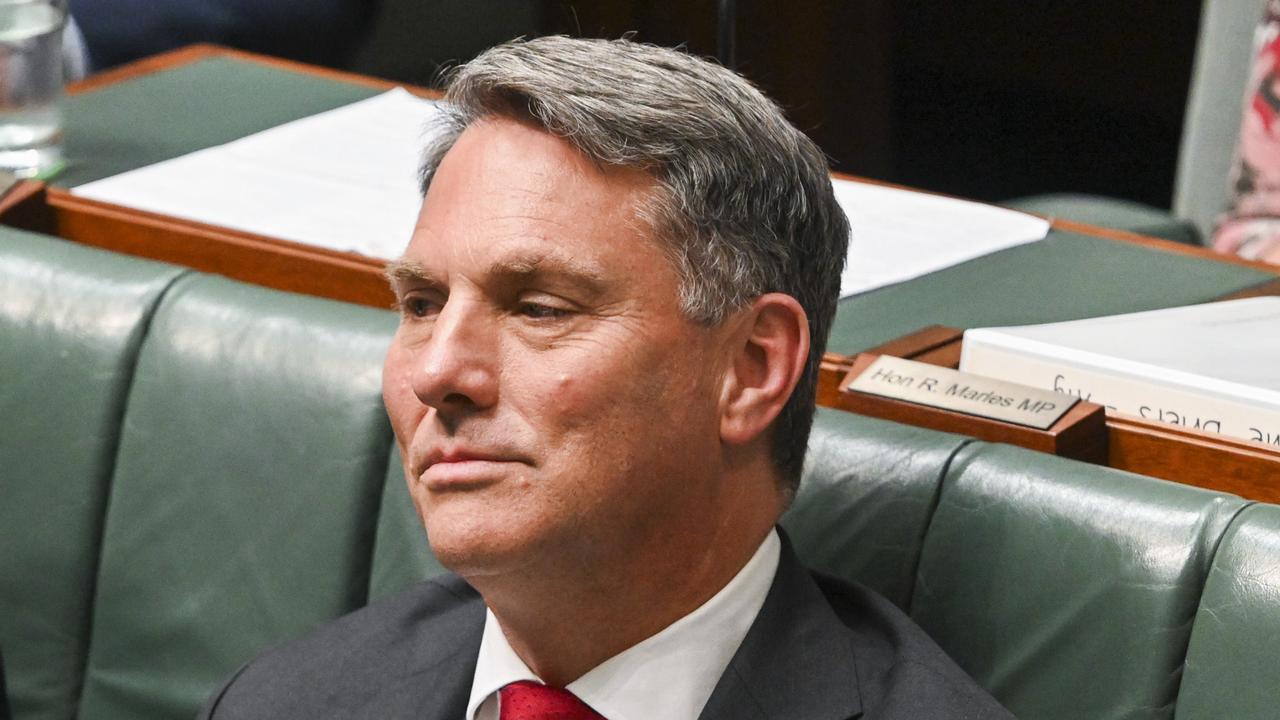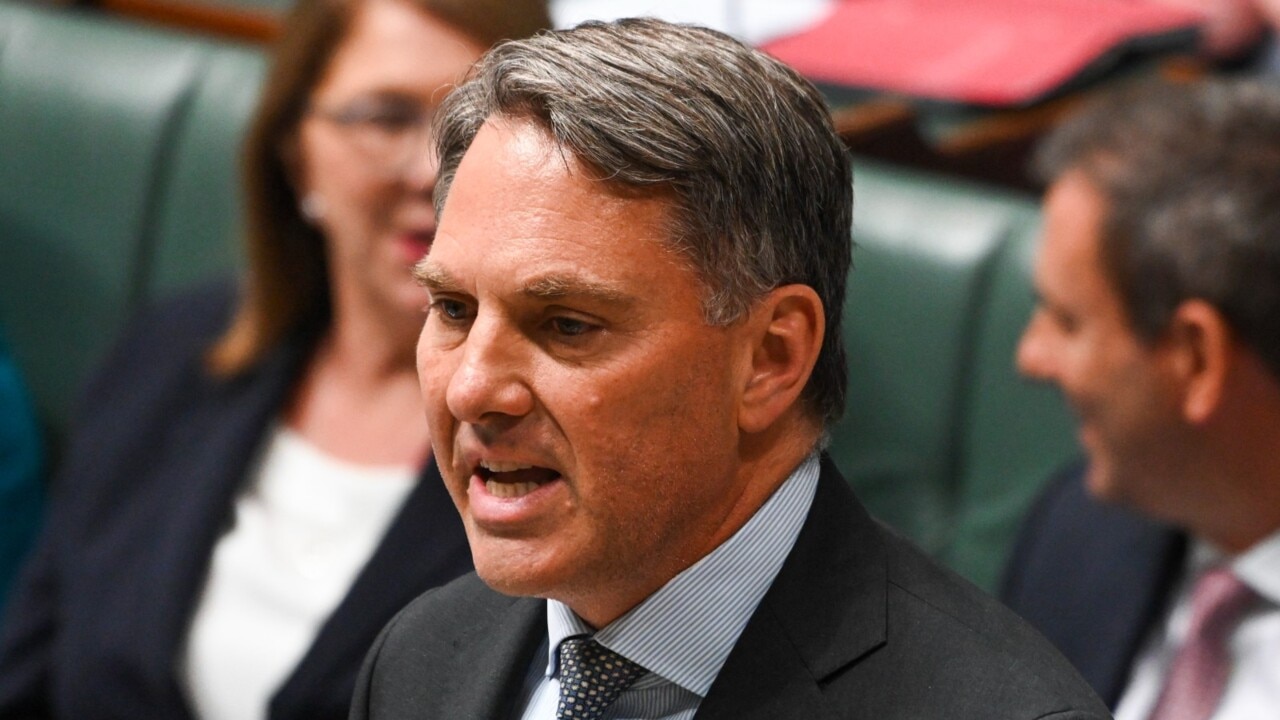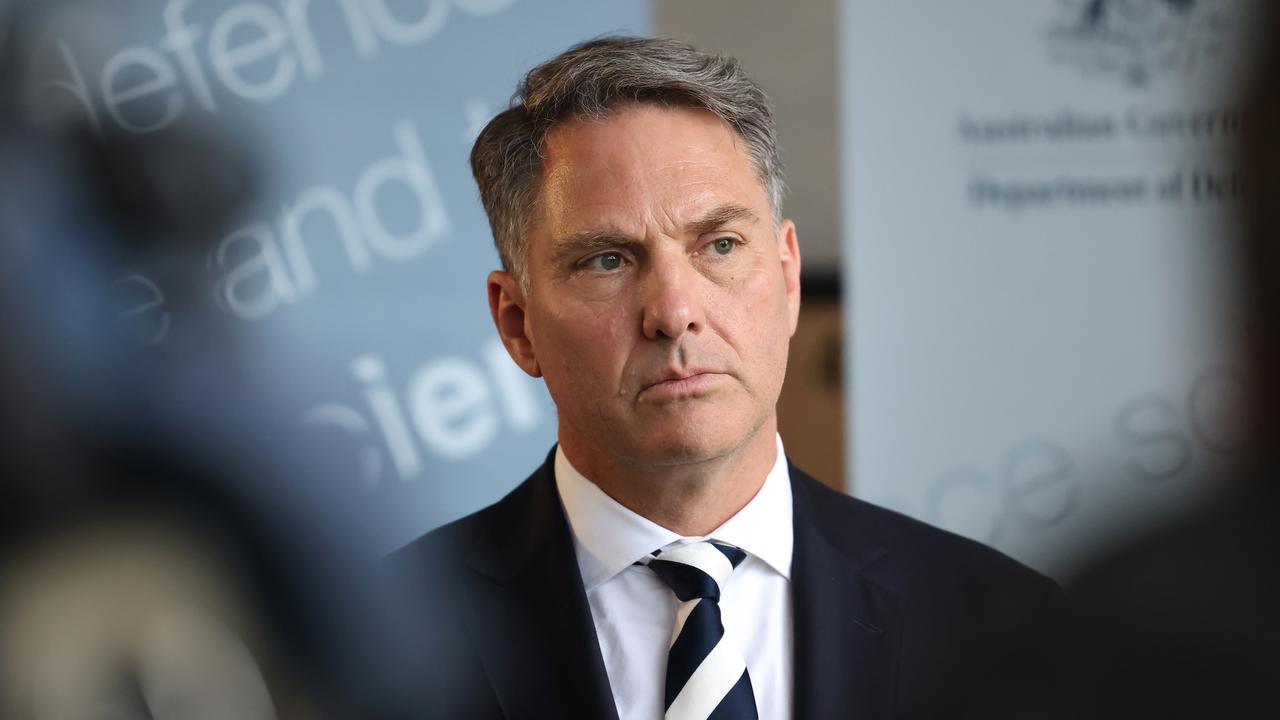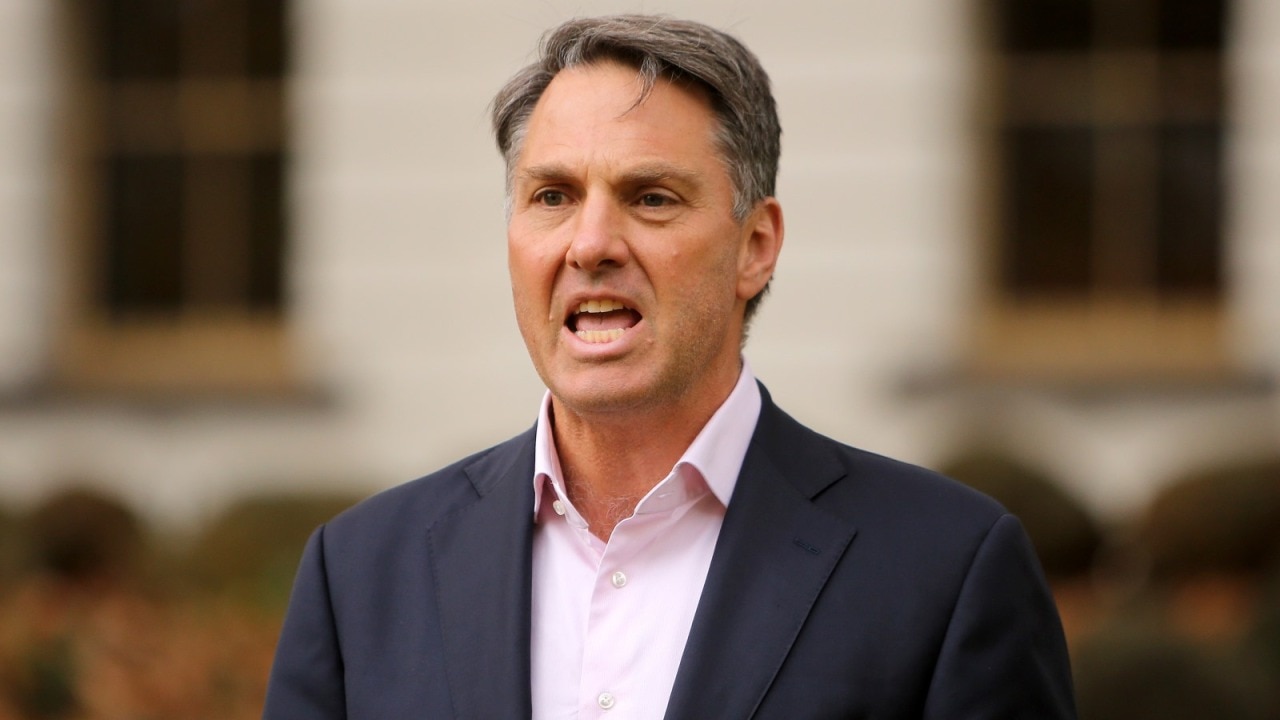Richard Marles, Australia’s Deputy Prime Minister, occupies a pivotal role in the nation’s political landscape. This exploration delves into his career trajectory within the Australian Labor Party, examining his significant policy contributions, his approach to the Deputy Prime Ministership, and his prominent stance on defence and security matters. We will analyze his impact on Australia’s international relations and explore the public perception and media coverage surrounding this influential figure.
From his early career within the Labor Party to his current position, we will trace Marles’ rise through the ranks, highlighting key appointments and legislative achievements. His views on Australia’s defence capabilities, strategic alliances, and approaches to regional security challenges will be central to our discussion, along with an examination of his significant speeches and public statements. We will also analyze his impact on Australia’s standing on the global stage and the public’s perception of his performance.
Marles’ Role as Deputy Prime Minister
Richard Marles, as Deputy Prime Minister of Australia, holds a significant position within the Australian government. This role encompasses a broad range of responsibilities, extending beyond specific ministerial portfolios to include crucial functions supporting the Prime Minister and contributing to the overall effectiveness of the government.The Deputy Prime Minister’s responsibilities are multifaceted. They act as a key advisor to the Prime Minister, offering support and counsel on policy matters and government strategy.
They also often chair cabinet committees or lead specific policy initiatives, depending on the Prime Minister’s delegation. In the absence of the Prime Minister, the Deputy Prime Minister assumes the role of acting Prime Minister, inheriting all the associated powers and responsibilities. Furthermore, the Deputy Prime Minister frequently represents the government at both domestic and international events, playing a significant role in maintaining national and international relations.
Marles’ Approach and Priorities
Richard Marles’ approach to the Deputy Prime Ministership appears to be characterized by a focus on collaboration and strategic policy development. His priorities, judging from his public statements and actions, seem to include strengthening Australia’s alliances, particularly with the United States and within the Indo-Pacific region. He has also demonstrated a commitment to economic stability and fostering a strong national defense.
This focus is reflected in his involvement in various government initiatives and international engagements.
Examples of Marles’ Actions and Decisions
For example, Marles has been instrumental in shaping Australia’s foreign policy approach, particularly regarding the Indo-Pacific region. His high-profile visits to various countries in the region have served to strengthen diplomatic ties and solidify Australia’s commitment to regional stability. Furthermore, his involvement in key policy discussions regarding defense spending and national security underscores his commitment to these areas.
Specific examples of his decisions and actions are often detailed in official government reports and press releases, though the specifics are often confidential due to national security concerns.
Significant Challenges Faced by Marles as Deputy Prime Minister
The Deputy Prime Ministership presents several inherent challenges. One significant challenge is navigating the complexities of coalition politics, ensuring alignment between different government departments and maintaining a cohesive approach to policy implementation. Another is maintaining a strong and consistent national narrative amidst domestic and international complexities, particularly in the face of evolving geopolitical landscapes and global economic uncertainties.
Finally, the immense workload and constant demands on time represent a significant challenge in effectively managing the responsibilities of the role. These challenges are inherent to the position and require strong leadership and diplomatic skills to overcome.
Marles’ Stance on Defence and Security
Richard Marles, as Australia’s Deputy Prime Minister and Minister for Defence, has significantly shaped the nation’s approach to defence and security. His views reflect a commitment to strengthening Australia’s capabilities, fostering strategic alliances, and navigating the complexities of the Indo-Pacific region. His policies represent a departure from some previous approaches, emphasizing a more proactive and integrated strategy.
Marles’ vision for Australia’s defence involves a multifaceted approach encompassing technological advancement, enhanced regional partnerships, and a strengthened domestic defence industry. This strategy acknowledges the evolving geopolitical landscape and the increasing importance of maintaining a robust defence posture in a challenging strategic environment.
Australia’s Defence Capabilities and Strategic Alliances
Marles has consistently advocated for bolstering Australia’s defence capabilities through increased investment in advanced military technologies, including cyber warfare capabilities and improved intelligence gathering. He has emphasized the importance of strengthening existing alliances, particularly the Australia-US alliance (AUSUS) and the relationship with the UK, under the AUKUS partnership. This focus on alliances is seen as crucial for deterring potential aggressors and ensuring regional stability.
Richard Marles’s career in Australian politics has been marked by significant contributions to national security and defense policy. For a detailed look at his career and current roles, you can explore this informative resource on richard marles. Understanding his background is crucial for anyone following Australian political developments, as his influence continues to shape the nation’s future.
The AUKUS partnership, for example, is a key element of this strategy, focusing on the acquisition of nuclear-powered submarines, a capability Marles has strongly supported. This initiative signifies a substantial commitment to enhancing Australia’s naval power projection and strategic reach.
Key Policy Initiatives in Defence and Security, Richard marles
A central tenet of Marles’ defence policy is the enhancement of Australia’s defence industrial base. This involves supporting domestic companies in developing and producing defence equipment, reducing reliance on foreign suppliers and creating high-skilled jobs. He has also championed initiatives aimed at improving interoperability with allies, ensuring seamless cooperation in joint military operations. Another key initiative is the focus on cyber security, recognizing the growing threat posed by cyberattacks to critical infrastructure and national security.
These policies are intended to modernize Australia’s defence capabilities and enhance its resilience against a range of threats.
Approach to Regional Security Challenges in the Indo-Pacific
Marles’ approach to regional security emphasizes a commitment to multilateralism and engagement with regional partners. He has stressed the importance of working closely with countries in Southeast Asia and the Pacific Islands to address shared security concerns, such as terrorism, transnational crime, and climate change. His policy recognizes that a stable and secure Indo-Pacific region is crucial for Australia’s interests and actively promotes a rules-based international order.
He has consistently highlighted the importance of diplomacy and dialogue in resolving regional disputes, while also maintaining a strong defence posture to deter aggression.
Comparison of Defence Policies
| Government | Policy Focus | Key Initiatives | Outcomes |
|---|---|---|---|
| Abbott Government (2013-2015) | Emphasis on border security and counter-terrorism; focus on a strong US alliance. | Increased border protection measures; participation in the War on Terror. | Strengthened border security; increased military involvement in international conflicts. |
| Turnbull Government (2015-2018) | Continued focus on counter-terrorism; increased defence spending; modernization of defence capabilities. | Investment in new fighter jets; submarine acquisition program (initially conventional). | Progress in modernizing defence capabilities; initiation of major defence procurement projects. |
| Morrison Government (2018-2022) | Emphasis on regional security; increased defence spending; focus on the Indo-Pacific. | Increased defence budget; commitment to AUKUS; focus on Pacific Island nations. | Significant increase in defence spending; launch of the AUKUS partnership. |
| Albanese Government (2022-Present) | Strengthening alliances; enhancing defence industrial base; focus on cyber security and regional engagement. | Increased investment in defence; emphasis on AUKUS; support for domestic defence industry. | Ongoing implementation of defence initiatives; strengthening of regional partnerships. |
Public Perception and Media Coverage of Richard Marles
Australian media coverage of Richard Marles has been varied and often reflects the shifting political landscape. His prominent role as Deputy Prime Minister and Minister for Defence naturally attracts significant attention, leading to a diverse range of portrayals across different news outlets and journalistic styles. Understanding this media landscape requires analyzing both positive and negative representations, identifying recurring themes, and recognizing the common criticisms and praises leveled against him.
Summary of Media Portrayals
The Australian media’s portrayal of Richard Marles is complex and multifaceted. He is frequently presented as a serious and experienced politician, reflecting his long tenure in Parliament and his current high-ranking position within government. However, the tone and focus of this portrayal shift depending on the specific news outlet and the context of the reporting. Some media outlets present a more critical perspective, highlighting policy disagreements or questioning specific decisions.
Others offer a more supportive stance, emphasizing his leadership qualities and experience. The overall narrative is not consistently positive or negative, but rather a dynamic mix shaped by current events and political agendas.
Examples of Significant Media Coverage
A positive portrayal might involve coverage of Marles’ successful diplomatic engagements, emphasizing his ability to build international relationships and advance Australia’s interests on the world stage. For example, a news report might detail his strong advocacy for increased defence cooperation with key allies, portraying him as a decisive and effective leader in the realm of national security. Conversely, negative coverage could focus on criticism of specific policy decisions, such as controversy surrounding a particular defence procurement process, with headlines emphasizing cost overruns or perceived strategic missteps.
The emphasis might be placed on opposition critiques and concerns voiced by experts, painting a picture of less-than-effective management.
Common Themes and Narratives in Media Reporting
Several recurring themes emerge in media reporting on Richard Marles. His experience and expertise in foreign affairs and defence policy are frequently highlighted, often presented as both a strength and a potential point of contention. The narrative often revolves around his role in shaping Australia’s security posture, with analysis focusing on his strategic vision and the effectiveness of his policies in achieving national security goals.
Another common theme is the scrutiny of his leadership style and his ability to navigate complex political challenges. This often involves assessing his effectiveness in working collaboratively with colleagues across the political spectrum and in managing internal government processes.
Common Criticisms and Praises
The public discourse surrounding Richard Marles includes both significant praise and notable criticism.
- Praise: His experience and expertise in foreign policy and defence are frequently lauded, as is his perceived commitment to strengthening Australia’s alliances and enhancing national security.
- Criticism: Critics sometimes question the cost-effectiveness of certain defence initiatives, the pace of policy implementation, or his approach to specific foreign policy challenges. Some criticism may also target perceived shortcomings in communication or transparency.
Significant Speeches and Public Statements by Richard Marles
Richard Marles, as Deputy Prime Minister and Minister for Defence, has delivered numerous significant speeches and public statements shaping Australia’s national security policy and international relations. Analyzing key addresses allows for a deeper understanding of his policy positions and their impact on the political landscape. The following section examines three such instances.
Address to the National Press Club on Australia’s Defence Strategy
This speech, delivered in [Insert Date], provided a comprehensive overview of the Albanese government’s approach to defence. Marles Artikeld the key pillars of the strategy, emphasizing the need for a stronger, more resilient defence force capable of responding to the evolving security challenges in the Indo-Pacific region. Key points included a commitment to increased defence spending, modernization of military capabilities, and a strengthened alliance with the United States.
The context was a period of heightened geopolitical tension in the region, particularly concerning China’s growing military power. The speech was well-received, with many commentators praising its clarity and ambition. However, some critics questioned the feasibility of achieving the stated goals within the allocated budget.
Statement on AUKUS and the Acquisition of Nuclear-Powered Submarines
Following the announcement of the AUKUS partnership, Marles made several key statements clarifying Australia’s commitment to acquiring nuclear-powered submarines. A particularly significant statement [Insert Date and specific reference if possible] detailed the complex technological and logistical challenges involved in the project, outlining the phased approach to acquisition and the collaborative nature of the undertaking with the US and UK.
The context was one of intense public debate and scrutiny, with concerns raised about cost, timeline, and the implications for Australia’s non-proliferation commitments. The reception to these statements was mixed, with supporters emphasizing the strategic benefits and critics expressing concerns about the financial burden and potential risks.
Speech at the Shangri-La Dialogue
Marles’ address at the Shangri-La Dialogue in [Insert Year] focused on Australia’s vision for a stable and secure Indo-Pacific region. He reiterated Australia’s commitment to a rules-based international order and highlighted the importance of regional cooperation in addressing shared challenges. The speech emphasized the need for open communication and dialogue with all regional partners, including China, while also underscoring Australia’s commitment to its alliances and partnerships.
Richard Marles’s career in Australian politics has been marked by significant contributions to the nation’s foreign policy and defense strategies. For a more in-depth look at his career and achievements, you can visit this informative website dedicated to his public life: richard marles. Understanding his background is crucial for comprehending his current role and influence within the Australian government.
The context was a period of increasing strategic competition in the region, with concerns about the potential for conflict. The speech was widely reported internationally and generally viewed as a measured and responsible contribution to the ongoing dialogue on regional security. The impact was a further solidifying of Australia’s position as a key player in regional security discussions.
Visual Representation of Richard Marles’ Career
This section details two potential visual representations summarizing key moments in Richard Marles’ career and illustrating his key policy positions. These visuals aim to provide a concise and easily digestible overview of his professional journey and political stances.
Timeline of Richard Marles’ Career
This timeline would visually represent the key stages of Richard Marles’ career, using a horizontal axis for time and a vertical axis for career milestones. The timeline would begin with his early life and education, progressing through his professional career before entering politics. Key dates and events would be marked with icons and short descriptions. For example, the year he entered parliament would be marked with an icon of the Australian Parliament House, and his appointment as Deputy Prime Minister would be marked with a similarly relevant icon.
Significant achievements, such as publishing books or holding specific ministerial positions, would be included with brief descriptions. The colour scheme could utilize a consistent palette for visual appeal and easy navigation. The overall effect would be a clear and chronological overview of his career progression.
Infographic Illustrating Richard Marles’ Key Policy Positions
This infographic would use a combination of icons and text to clearly and concisely communicate Richard Marles’ key policy positions. The infographic could be divided into sections representing broad policy areas, such as defence, economy, and social policy. Within each section, key policy positions would be represented by easily understandable icons. For example, his stance on defence could be represented by an icon of a ship or aircraft, while his economic policies could be represented by icons representing growth or job creation.
Each icon would be accompanied by a short, clear description of the associated policy. A consistent colour scheme and clear font would be used for optimal readability. The overall design would aim for simplicity and clarity, making it easy for viewers to quickly grasp his main policy priorities.
Richard Marles’ career demonstrates a significant contribution to Australian politics. His tenure as Deputy Prime Minister, marked by a focus on defence and security, and his engagement in shaping Australia’s international relations, present a complex and multifaceted picture. Understanding his political journey, policy positions, and public image offers valuable insight into the current state of Australian politics and its place on the world stage.
Further research into his specific policy initiatives and their long-term effects would enrich our understanding of his legacy.
Question Bank
What is Richard Marles’ educational background?
Information on Richard Marles’ educational background would require further research beyond the provided Artikel.
What are some key criticisms leveled against Richard Marles?
Detailed criticisms require a more extensive review of media coverage and public discourse beyond the scope of this Artikel. Common criticisms would need to be sourced from reputable news outlets and political analysis.
What are his key policy positions on climate change?
The Artikel does not detail his specific climate change policies. Further research into his statements and voting records would be necessary to answer this question.




